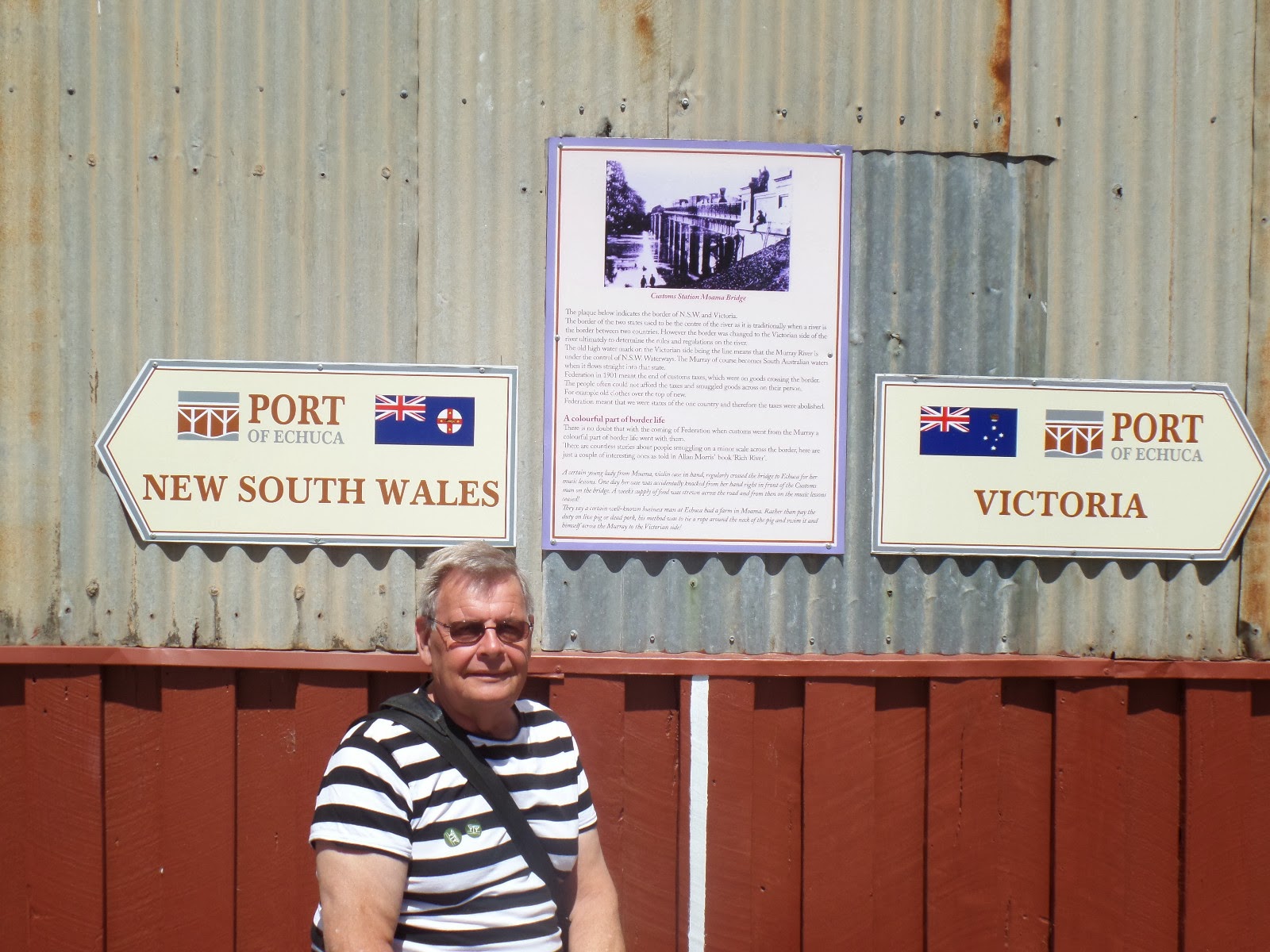Echuca was founded in 1850 by an ex-convict called Henry Hopwood, who bought and operated a punt which took lifestock and horse drawn vehicles across the river. He also built a hotel beside the ferry called the Grand Hotel. People drank, ate and slept at the hotel while they waited for their turn to cross on the ferry. Consequently Hopwood became a very successful and influentual person in Echuca.
Once paddleboats were introduced to carry timber, lifestock, wool and machinery on the rivers, Echuca became an important port, and then a key river port and railway junction once the railway line from Melbourne was built. There was a huge 400 metre long redgum wharf, a timber mill, plus ship building slipways around Echuca. The river was used as a transport system until the mid 1950's.
Since the 1970's there has been a revival in restoring old paddleboats as well as building houseboats for people to rent. A new wharf was built two years ago, which was a massive undertaking. There is now a new museum and a great interest in restoring old machinery.
There is a walkway running along the bank, which makes the journey down to the paddleboats much easier. The paddleboat below the walkway is called the Etona (named after Eton). It was once a floating church, and contained a small chapel. It is currently privately owned but is in need of serious work.
The Pevensey, named after a sheep station beside the Darling River. The Pevensey, is a paddleboat with an original steam engine. It has a wooden hull made of redgum and was built in 1911. It takes visitors out on the river for a 1 hour cruise during the summer months.
Our ticket, gave us the trip on the Pevensey, plus entrance into the museum. It cost $28 each, senior citizen rates.
The trip on the river was magical. The clouds were not really low. It was the smoke from the engine billowing out over the gum trees. The water in the Murray River is always brown. No, it is not due to pollution nor saline but due to the river having a muddy and sandy bottom. European carp were introduced into the river, and they grew to be enormous. Not that anyone eats them here. They taste of mud apparently.
The old iron bridge, built in the late 1880s, replaced the ferry.
Some of the houseboats waiting to be hired
The ultimate in pleasure boats, like a floating villa with a speed boat at the back. The St Tropaz houseboat.
The pirate houseboat. A bit breezy on a cold day.
The banks of the river, eroded during a flood.
The new wharf , with landings on different levels to account for the varying heights of the river. Apparently flood waters once came up as far as one foot from the top of the wharf. And it is a very high wharf. Excellent craftmanship.
More old paddleboats.
A peaceful river scene.
The old street has a dirt road and wooden kerbs. The old buildings are used daily, mostly pubs and cafes. This old truck plus various other old vehicles and machinery decorate the side of the road. A step back into the past.
Walter sitting in front of the boundary between Victoria and New South Wales. The boundary runs down the length of the wharf as it was easy to collect the taxes when people moved goods from one state to the next. It was very difficult to collect taxes when the river was the dividing line. So this part of the river was the responsibility of New South Wales. I am not sure if this is still so.
A fascinating map showing all the rivers and streams of the Darling basin. All rivers, including the Murrumbidgee and Darling, run into the Murray which then carries the water out to the sea. So problems that occur in other states end up in Goolwa and the surrounding Coorong.
Of course in dry weather and especially during droughts there was very little water in the Darling basin, and paddleboats often became stranded for months, and sometimes for years.
So to end a lovely day we went to a pub on the old street. Walter chose pizza and I chose a pork roast. Both freshly prepared and cooked, of course, and delicious. We also each had a glass of merlot/cabinet wine from the Hunter valley. Also delicious.
We thoroughly enjoyed our day and gained quite an insight into, and appreciation of, the life of the people who were connected with the river.














No comments:
Post a Comment